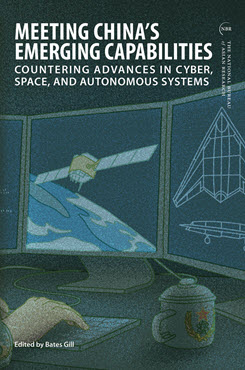Essay from NBR Special Report no. 103
China’s Cyber, Space, and Autonomous Weapons Systems
India’s Concerns and Responses
This essay examines India’s key concerns about China’s growing technological prowess in the areas of cyberspace, outer space, and artificial intelligence and automation; the Indian response; and the potential for India and the U.S. to collaborate on these strategic technologies.
EXECUTIVE SUMMARY
MAIN ARGUMENT
China has made significant technological gains, especially in the area of critical and emerging technologies, such as outer space, cyberspace, and autonomous weapons. Its attempts to gain parity with the U.S. have had the net effect of creating a military force that is technologically far superior to India’s. This technological prowess has the potential to make Indian efforts at countering China a lot more challenging, and even broaden the power asymmetry between the two countries. As China gains greater proficiency in these technologies in relation to India, it also makes New Delhi’s deterrence calculations a lot riskier. China’s growing cyber capabilities include the ability to undertake influence and information operations as well as offensive cyber tools with the capability to strike the critical infrastructure of its adversaries. Similarly, China’s growing array of counterspace capabilities, including anti-satellite weapons and cyber and electronic warfare, have consequences for India. China’s advancements in artificial intelligence and automation with military applications are also of consequence. In sum, China’s growing technological proficiencies, along with its aggressive behavior, have forced India to respond. The Indian response has involved capability development, changes in policy, and institutional innovation. India has also accelerated its strategic partnership with the U.S. and other partners in Asia, including Japan, Australia, and France.
POLICY IMPLICATIONS
- China’s technological advances will potentially make India’s deterrence strategy less effective.
- China’s growing proficiency in critical and emerging technologies increases the likelihood of a destabilizing arms race in the region and beyond.
- China’s growing technological competencies and India’s responses will likely require greater collaboration between India and its partners, including the U.S. as well as Japan, Australia, and France.
Rajeswari (Raji) Pillai Rajagopalan is the Director of the Centre for Security, Strategy and Technology at the Observer Research Foundation (ORF) in New Delhi.



